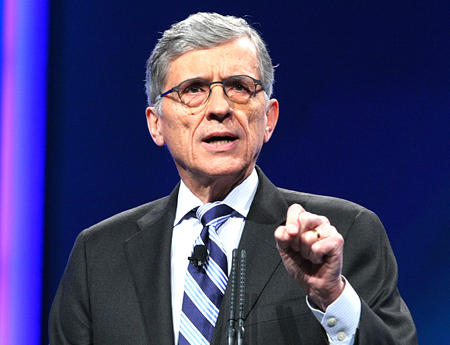A STELAR Outcome for Cable

The smarter way to stay on top of broadcasting and cable industry. Sign up below
You are now subscribed
Your newsletter sign-up was successful
Cable operators have been praising the new satellite reauthorization bill, and not just because it has, somewhat miraculously, avoided the drama that attended the 2009 (which turned into 2010) reauthorization.
They had reason to be upbeat. The bill that passed the House and Senate last week with nary a discouraging word included some retrans reforms and scrapping the integrated set-top ban, giving cable operators several victories.
Last time around, the reauthorization process was far more contentious, and led to a months-long delay in renewing the compulsory license with a bill that avoided retrans issues.
Cable operators had been hoping for a longshot provision introduced in the Senate that would have essentially eviscerated retrans, turning it into a direct negotiation between broadcasters and MVPD subs, but that was a bridge too far and would have likely created the same kind of impasses as in 2009. Preventing retrans blackouts had also been on the table, but was among various provisions that had to be dropped to secure bipartisan support.
But look for the “local choice” provision to resurface next year as the House prepares to weigh in on a Telecommunications Act revamp and one of its Senate cosponsors, Sen. John Thune (R-S.D.), takes over as chair of the Senate Commerce Committee.
The bill’s passage by both Houses of Congress was being hailed as an example of how the two parties could work together, the kind of bipartisan lawmaking that has been in short supply.
While ATVA, and the National Cable & Telecommunications Association all released statements praising passage and urging the President to sign it, the National Association of Broadcasters and TVFreedom were silent on the bill. Spokespeople for both said they were “neutral.”
The smarter way to stay on top of broadcasting and cable industry. Sign up below
Broadcast lobbyists speaking not for attribution were putting the best face on the bill, pointing out the absence of the retrans-eviscerating portions and blackout prohibitions. Then there was the six extra months stations will get to unwind joint sales agreements that the FCC this year made attributable as ownership interests.
Eliminating the set-top ban had been one of NCTA’s big asks, and appeared at one point to be in some trouble given the opposition of Sen. Ed Markey (D-Mass.) in particular, who had blocked passage of a Senate version of the bill. But he relented.
FCC Chairman Tom Wheeler promised to get to work ASAP on finding a successor to the CableCARD hardware fix for promoting a retail market in boxes, something the integration ban failed notably to achieve. The integration ban won’t sunset for a year, an effort to accommodate Markey and other fans of the integration ban.
Broadcasters had reason not to exactly be celebrating the bill, given that it extended the prohibition on coordinated retrans from the top four stations in a market to all noncommonly owned stations. It’s something the American Cable Association had been pushing for, and it requires the FCC to look at what should be defi ned as good-faith negotiations.
WEATHER (COVERAGE) REPORT
FCC commissioner Michael O’Rielly spoke with Buffalo broadcasters about covering the big November storm. O’Rielly, who hails from the Buffalo area, talked with B&C about what he learned.
You said at the November meeting you were talking to broadcasters in Buffalo. How did that come about?
I was starting to think, hey, we should see if they need anything from the FCC. Are there any problems with the towers or are there any specific issues they are facing? At the same time the broadcasters reached out to me and said, would you like to know what happened in your old area? So we kind of put two and two together and we talked.
What were their issues?
They didn’t actually need anything from the FCC, which is good. They weren’t having problems with towers or power. They were on the air for hours on hours getting messages out about the weather, where local people needed help. People were calling them saying, “We are stuck, can you do anything about it?” and they were getting messages out to police. They were also challenging the local governments, saying, “You are saying this, but it is not happening here.”
Contributing editor John Eggerton has been an editor and/or writer on media regulation, legislation and policy for over four decades, including covering the FCC, FTC, Congress, the major media trade associations, and the federal courts. In addition to Multichannel News and Broadcasting + Cable, his work has appeared in Radio World, TV Technology, TV Fax, This Week in Consumer Electronics, Variety and the Encyclopedia Britannica.

